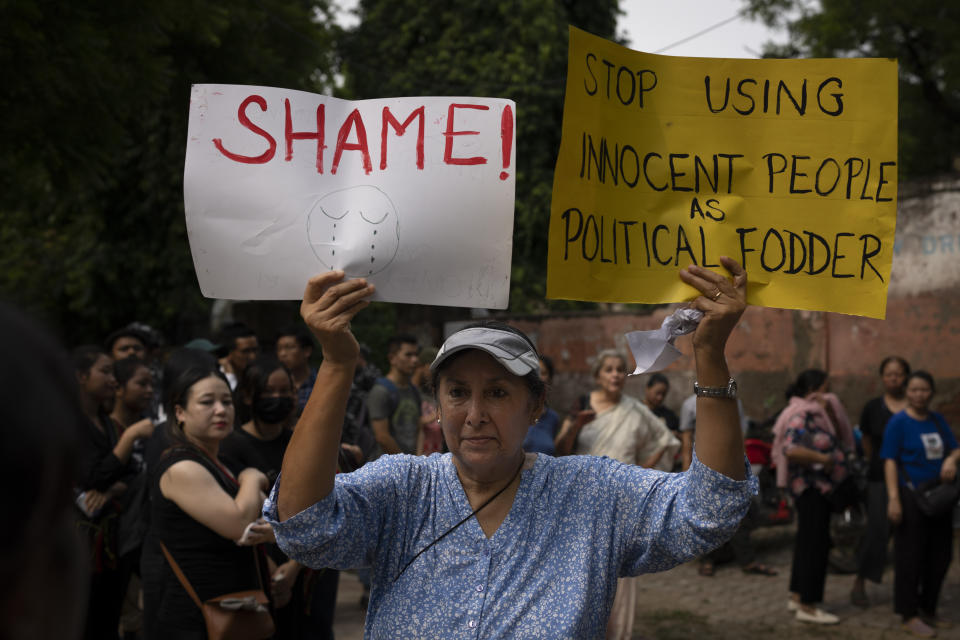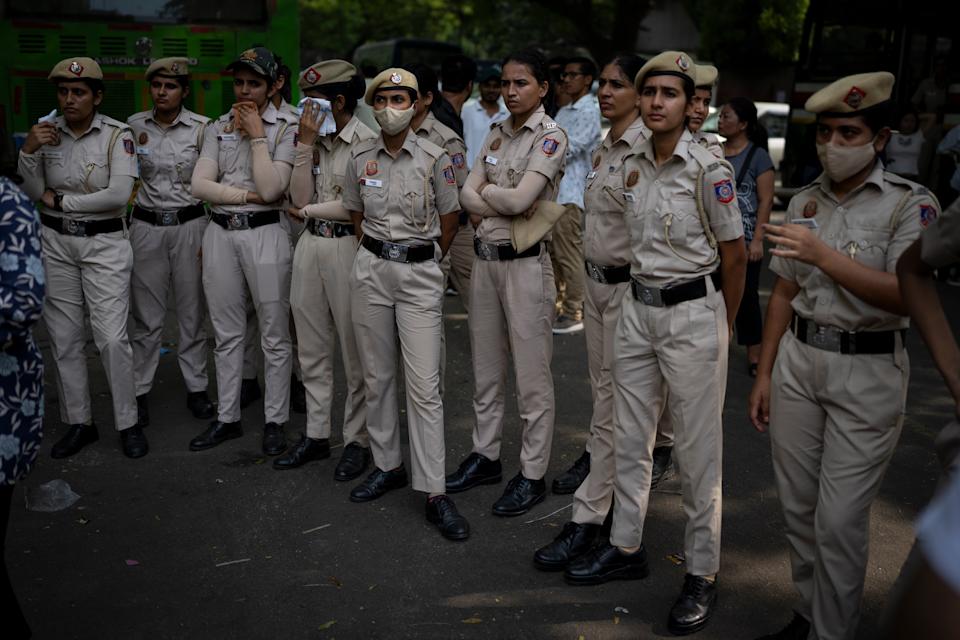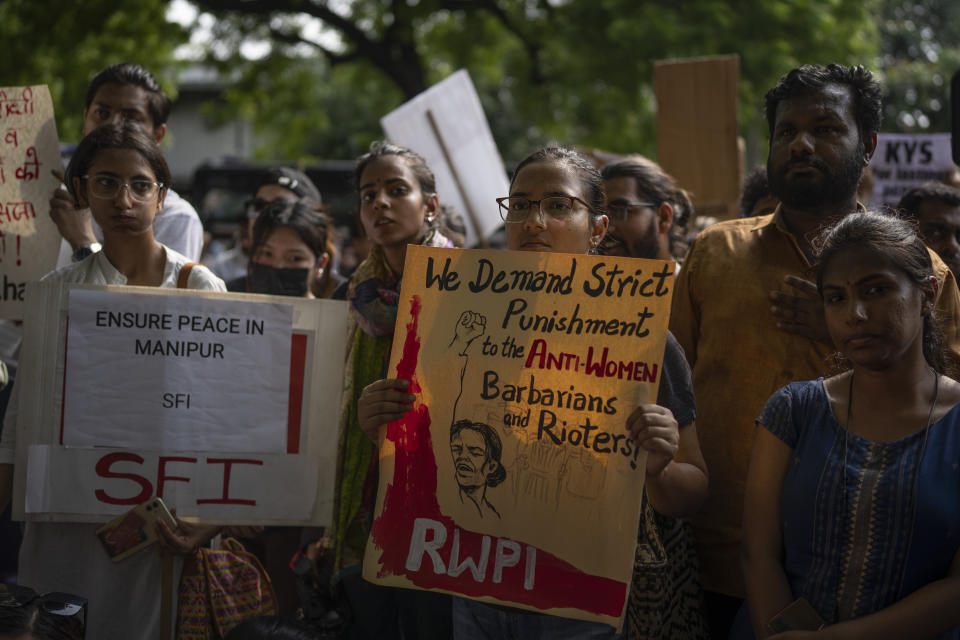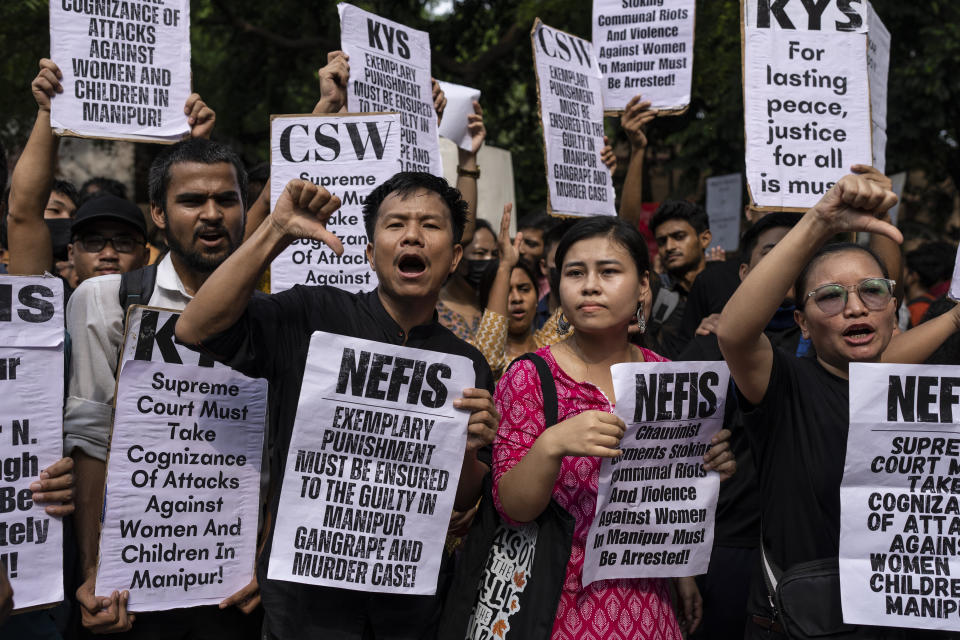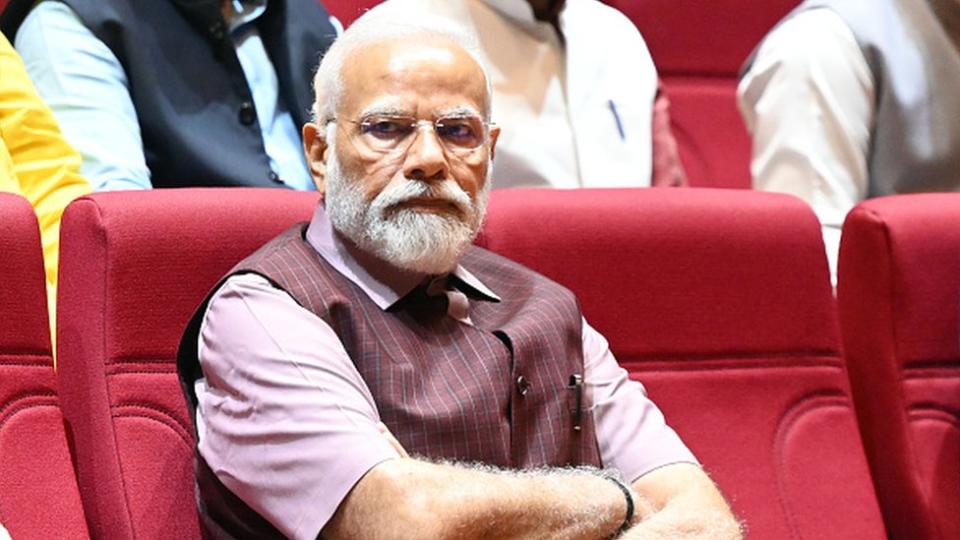Fri, 1 April 2022

The most potent protest movement in recent French history, the Yellow Vest uprising looked at one point like it might bring a premature end to Emmanuel Macron’s presidency. More than three years after it was smothered, its politicised remnants are counting on their ballots to finish the job.
France’s upcoming presidential election has been described as the least suspenseful in decades, a lopsided contest in which Macron is widely expected to prevail over a motley crew of challengers rejected by a majority of voters.
It’s a prospect 56-year-old Jérôme Batret finds hard to stomach, more than three years after the farmer from rural Auvergne first donned a “yellow vest” in protest at Macron’s government – joining an unconventional insurgency that caught Paris elites napping, rattling the government, baffling commentators, and eventually inspiring copy-cat protests around the world.
Named after the now-famous fluorescent waistcoats that are mandatory in French cars, the Gilets jaunes (Yellow Vests) staged more than 60 consecutive weeks of protests against economic hardship, mounting inequality and a discredited political establishment. They manned roundabouts across the country night and day, took to the streets of towns and cities on every Saturday, and at their peak in December 2018 even stormed the Arc de Triomphe in central Paris, amid scenes of chaos not witnessed since May 1968.
On the day a sea of yellow swarmed the Champs-Elysées, protesters in Batret’s usually tranquil hometown of Le Puy-en-Velay set fire to the local police prefecture with a molotov cocktail. When the French president paid a secretive visit days later to offer shaken officers his support, his vehicle was chased away by angry protesters shouting “Tous pourris” (You’re all corrupt) and “Macron resign”.
Batret was among the very first Gilets jaunes, manning a nearby roundabout non-stop for three weeks. During those heady days, it felt like Macron’s fall was “only a matter of days”, he recalls in an interview with FRANCE 24. Little did he expect the young president would see off the challenge and come back stronger three years later, poised for another mandate.
“He didn’t respect the people back then and he doesn’t respect them now,” says Batret, citing Macron’s pledge last year to “emmerde” (piss off) those who reject Covid-19 vaccines. “We have a president who wants to piss off his own people – and yet he’ll win again.”
‘Politicians in Paris don’t give a shit about us’
Like other rural and suburban workers who formed the backbone of the Yellow Vest insurgency, Batret says his spending power has plummeted during Macron’s five years in office – a turbulent term marked by the coronavirus pandemic and now the fallout from the war in Ukraine. Surging energy prices mean most of his earnings are now swallowed up by the fuel he needs to run his car and tractor, and heat his house.
“People in Paris tell me it’s not so bad for them, but out here in the countryside we’ve got no choice,” he says. “My sons work 35 kilometres from home. That’s 400 euros per month in petrol just to get to work.”
The trigger for the Yellow Vest uprising was an unpopular fuel tax, ostensibly designed to finance France’s transition to a green economy – though it soon became apparent that its proceeds would mostly be used to plug a budget deficit widened by the government’s tax cuts for businesses. The levy infuriated motorists in rural and suburban areas starved of public transport and other services, where households are heavily reliant on their cars.
This original association with motor vehicles, cemented by the symbol of the high-visibility vests, allowed some commentators in well-connected cities to dismiss the protesters as recalcitrant, selfish motorists unconcerned by climate change – an image that has largely stuck.
“Politicians in Paris don’t give a shit about us,” says Batret. “They make empty promises come election time and then leave us to rot. They have no respect for the people.”
A longtime conservative voter, the organic farmer says he will no longer vote for career politicians “who’ve never done anything real in their lives”. On April 10 he will cast his ballot in favour of Jean Lassalle, the Occitan-speaking son of Pyrenean shepherds who was fined 1,500 euros in 2018 for wearing a gilet jaune in France’s National Assembly.
“I know lots of people who never voted before but are now interested in the ‘small candidates’, like Lassalle, [trotskyist Philippe] Poutou, and others who never get mentioned in the media,” says Batret. “I also know people who’ll back extremists like [far-right polemicist] Eric Zemmour, but that says more about their state of despair than their true beliefs.”
When voters head back to the polls two weeks later for the second-round run-off, polls suggest they are likely to face a repeat of the 2017 duel between Macron and veteran far-right candidate Marine Le Pen – a prospect Batret is not relishing.
“On April 24 they’ll be telling us to back Macron as the lesser evil, but I don’t think he is,” he says. “If it’s Macron versus Le Pen again, I’ll vote Le Pen. And if it’s Zemmour, I’ll leave the country.”
‘The Gilets jaunes didn’t just evaporate’
Within months of the rioting witnessed on the Champs Elysée in late 2018, the number of Yellow Vests out on the streets had starkly diminished, and Macron could claim to have largely seen off the most formidable challenge to his presidency.
In terms of its material objectives, the movement was only partially successful. It forced the government into a series of crisis measures to prop up purchasing power, for instance by raising minimum pensions, which helped sap support for the movement. So did Macron’s “Great National Debate”, called in response to the protests, which the ubiquitous president soon turned into a town-hall road-show offering him unrivalled media coverage – while the Yellow Vests were kept at bay.
Still, the movement left an indelible mark on France, sending a clear warning to the country’s self-styled “Jupiterian” president and putting neglected swathes of the country back on the map.
“The Gilets jaunes didn’t just evaporate after taking off their vests,” says Magali Della Sudda, a researcher at Sciences-Po in Bordeaux, who has studied the uprising from its inception and continues to monitor its resurgences.
While the Yellow Vests are now a scattered and diminished force, Della Sudda identifies successive “waves of mobilisation”, some coinciding with policies or statements that galvanised protesters, like the introduction of a Covid-19 health pass restricting people’s freedom of movement or Macron’s pledge to “emmerde” anti-vaxxers.
“There are signs the movement is picking up again, focusing once again on its original themes of purchasing power and social justice,” she says, pointing to the tentative return of Yellow Vests on roundabouts across the country.
“Of course history never repeats itself quite the same way, but we can expect the movement to gain traction again, in one form or another, in the coming months – for instance if Macron puts his pension reform back on the table,” she adds, referring to an unpopular pension overhaul which the government forced through parliament without a vote and then suspended amid the pandemic.
Della Sudda says this year’s presidential campaign has done very little to address the grievances voiced by the Yellow Vests and their supporters, further fuelling popular resentment of politicians. Having pored over some of the tens of thousands of cahiers de doléances (complaint books) drawn up as part of Macron’s national debate, she points to a glaring gap between the country’s dominant political discourse and ordinary people’s real concerns.
“There is a huge discrepancy between the complaints voiced by the Gilets jaunes and by the broader public and the way political parties and the media fail to address these topics,” she says. “It took a war in Ukraine for candidates and the media to start talking about purchasing power – but the problem of energy and food prices did not start with the war.”
Surveys have consistently placed the cost of living at the top of voters’ concerns, followed by health and the environment – largely mirroring the priorities listed by French citizens in the cahiers de doléances, particularly those from rural areas where hospitals and other public services have shut over the years. And yet prior to Russia’s invasion of Ukraine, the presidential campaign was dominated by talk of immigration and Islam, driven by the unrivalled media exposure enjoyed by the likes of Zemmour.
>> Pushing far-right agenda, French news networks shape election debate
The gross inadequacy of the campaign means it is still unclear whether the bulk of the Gilets jaunes will boycott the polls or choose to cast protest votes instead, says Della Sudda, though stressing that the uprising has left a profound imprint on many, politicising citizens who previously shunned the polls. She says there are signs large swathes of the movement will seize on the opportunity to deliver their verdict on Macron’s government.
Toppling France’s ‘presidential monarchy’
The Yellow Vests’ relative inexperience of politics has contributed to generating misconceptions – as with their use of the term “apolitical” to stress their rejection of traditional party politics. Studies carried out at the height of the movement revealed that most participants were first-time protesters with no political or union affiliation. A majority said they didn’t believe in the traditional left-right divide, but theirs was a rejection of partisan politics, not of politics per se.
One of the defining features of the Yellow Vests is their attempt to reclaim politics by wresting it from the control of parties and institutions they see as undemocratic. As Della Sudda puts it, “one can credit the movement with getting the French to show interest in their institutions and constitution – a remarkable feat in its own right.”
Those institutions are failing the people, says 56-year-old Sabine, a primary school teacher from the Montpellier area in southern France, who declined to give her full name. She ranks among the numerous Gilets jaunes who have taken up grassroots politics after years of abstaining from the electoral process.
“I used to boycott the Fifth Republic’s anti-democratic elections,” she says, referring to the presidential regime instituted more than 60 years ago by France’s wartime hero, General Charles De Gaulle. “But after five years of Macron, I’ve decided to use my ballot to stop the rot.”
Sabine likens the Yellow Vest experience to a personal and collective awakening to politics and rampant injustice. She describes its members as “society’s invisible people who have risen up, who have sprung from the earth with their bright jackets, a symbol of alertness and visibility”.
“First there was the uprising, then the movement took root on roundabouts and on social media, and by way of regular meetings and assemblies,” she says. “Over time we were able to elaborate a political thought, in the noble sense of the word, meaning a commitment to improve the society we live in.”
More than three years after they first donned their bright jackets, Sabine and a dozen fellow activists are back on the roundabout they occupied on the outskirts of Montpellier at the start of the movement. After lengthy discussions, most members have agreed to back leftist candidate Jean-Luc Mélenchon on April 10.
“There were two main requirements for our choice of candidate: to carry our aspirations and have a chance of beating Macron. Mélenchon is the only one who meets both,” the teacher explains. She points to his pledges to impose a cap on prices, boost wages, bolster public services and convene a constituent assembly tasked with drafting a new constitution and replacing France’s “presidential monarchy”.
>> A new Republic: Leftist Mélenchon promises to topple France’s ‘presidential monarchy’
“Mélenchon is not our ideal candidate, he’s not to everyone's taste and we are well aware that there’s no easy fix. But he’s our best option. We’re at a crossroads: either we change course now or we let those in power dismantle our social system,” Sabine adds. “But our struggle won’t end at the ballot box. Whoever wins on April 24, we’ll keep up the fight.”
Anyone but Macron
A veteran leftist who is having his third shot at the presidency, Mélenchon is locked in a battle for second place with his longtime rival Le Pen – and polls suggest he is likely to fall short once again, missing out on the April 24 run-off. Second-round data also looks more encouraging for Le Pen, who has significantly narrowed the gap with Macron since she lost by more than 20 percentage points five years ago.
>> Closing in on Macron: Could Le Pen’s blandest campaign be her most successful yet?
On paper, the narrowing gap means Le Pen is more likely to benefit from the “anyone but Macron” vote than Mélenchon, says Della Sudda, with some supporters claiming that widespread anger could propel her to an unlikely victory over the president.
“It’s an argument I’ve been hearing on the roundabouts, voiced by a minority of Yellow Vests. But it’s not clear it will translate into widespread support for Le Pen,” she says. “Anti-Macronism is just one component of the Yellow Vest vote; and the National Rally doesn’t carry all of their aspirations – far from it.”
Both the National Rally and Mélenchon's La France insoumise (France unbowed) have been cautious in their appeals to the Gilets jaunes, wary of scaring away more moderate voters, says Frédéric Gonthier, a political scientist at the Pacte research centre in Grenoble, who has carried out extensive surveys of the Yellow Vest movement.
“Mélenchon and Le Pen are trying to present themselves as credible alternatives to Macron, by softening the more divisive elements in their platforms and tempering their populist pitch,” he explains. “For candidates who are trying to project an image of respectability, overtly anti-elitist statements aimed at seducing the Yellow Vests would be counterproductive.”
Vying for the working-class vote, the two candidates have focused on the hardship endured by France’s most vulnerable, hoping to draw the Yellow Vests among them without overt appeals.
Mélenchon has had to tread carefully, says Gonthier, noting that many Yellow Vests were deeply suspicious of his longtime membership of the Socialist Party, seeing him as a political “apparatchik”. As for Le Pen, “her party is deeply uncomfortable with the issue of police brutality, which is intimately associated with the Gilets jaunes.”
A tiny window of opportunity
The Yellow Vests’ often violent protests were met with a fierce crackdown that eventually smothered the movement, but not the anger. During the first months of unrest, dozens of protesters, journalists and bystanders suffered shocking injuries – including gouged eyes and hands ripped off – as a result of the rubber bullets and stun grenades used by riot police, while scores of officers were also wounded. The government’s steadfast refusal to question the police tactics, with Macron at one point saying “there is no such thing as police violence”, infuriated the Yellow Vests and further radicalised its diehard members.
Daniel Bodin’s voice breaks into sobs when recalling the violence of those days. The 66-year-old was among the first to man the roundabout near Montpellier, where he and Sabine still don their high-visibility jackets. “We’d never seen anything like it before. They treated us like pariahs,” he says of the “brutal repression” ordered by a president he describes as “authoritarian”.
There is something visceral about the revulsion Macron elicits among many Yellow Vests, who are prone to citing his derogatory comments – such as telling an unemployed man he need only “cross the street” to find a job, complaining about the “crazy money” France spends on welfare, and urging pensioners to “complain less” about their shrinking allowances.
“His comments are proof of his contempt for small folk like us, but it would be foolish to stop at that. It’s the laws he passed that upset me most,” says Bodin, pointing to the Covid-19 health pass and a contentious law extending police powers as evidence of civic freedoms being curtailed under Macron.
Like others in his group, Bodin is routing for Mélenchon in the election. He sees it as the only chance to reverse “the downward slide into neoliberal economics” and “put our politics back into the people’s hands”. He singles out for praise the leftist candidate’s pledge to introduce a so-called “citizen’s initiative referendum”, giving voters the power to initiate policy and revoke their elected representatives.
“But we are neither fans, nor groupies,” he cautions. “And we don’t claim to tell people how they should vote – that’s what political parties do.”
Bodin acknowledges deep divisions within the Yellow Vest movement, between those willing to engage with the electoral process and others who “would rather wait for the system to collapse or a civil war to break out”. “I understand those who are disgusted by politics and don’t want to vote,” he adds. “But we have a tiny window of opportunity and we must give it a try.”
